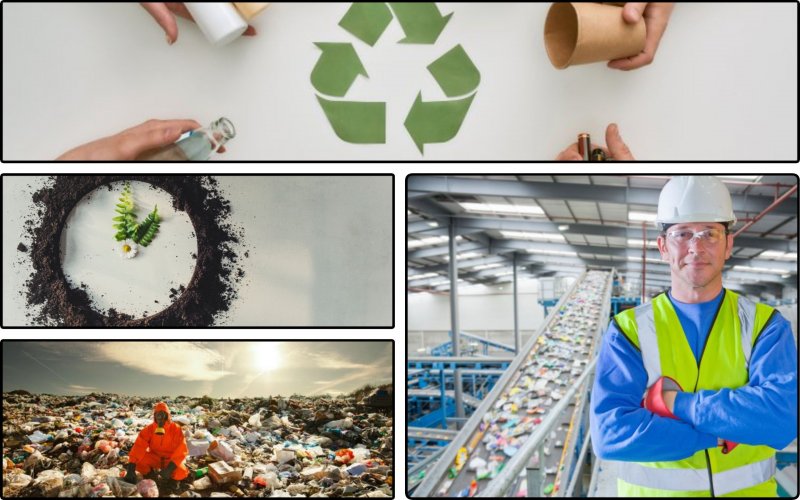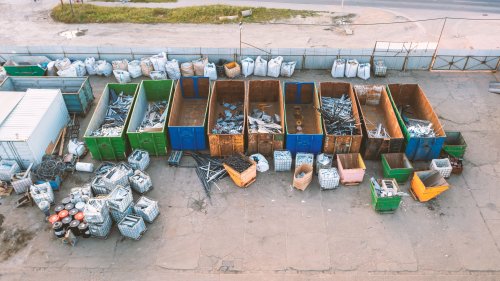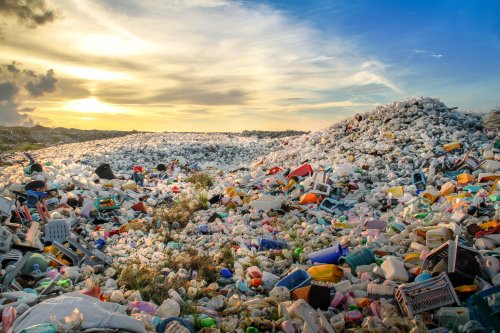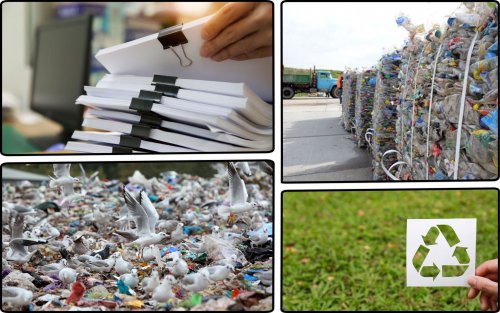On July 9, European integration Law No. 2320-IX "On Waste Management", adopted in 2022, entered into force in Ukraine. It launches the garbage reform, in particular, replaces the concept of "waste" with the concept of "raw material" in order to make recycling attractive for investment. The document is a framework, so it requires the adoption of a number of additional acts, most of which are still in the development stages.
EcoPolitic decided to find out what has changed in the field of waste management with the entry into force of the new law and whether Ukraine will be able to overcome the accumulation of garbage.
What did the new law change?
The Law "On Waste Management" changes the very philosophy of the industry. In addition to replacement the concept of "waste" to the concept of "raw material" he provides for:
- creation of a new permit system;
- decentralization of waste management;
- multi-level planning;
- infrastructure development;
- introduction of the European principles of the waste management hierarchy, extended producer responsibility (EPR) and the "polluter pays" principle.
The last point is very important, although it has not yet been implemented in practice. Now the buyer when buying a product, for example, bread, he also pays for the cost of packaging, which very quickly turns into garbage. However, the further fate of such waste does not concern manufacturers. Packaging and other product waste, like the products themselves, at best end up in a landfill, and in the worst case – in the forest, on a spontaneous landfill.
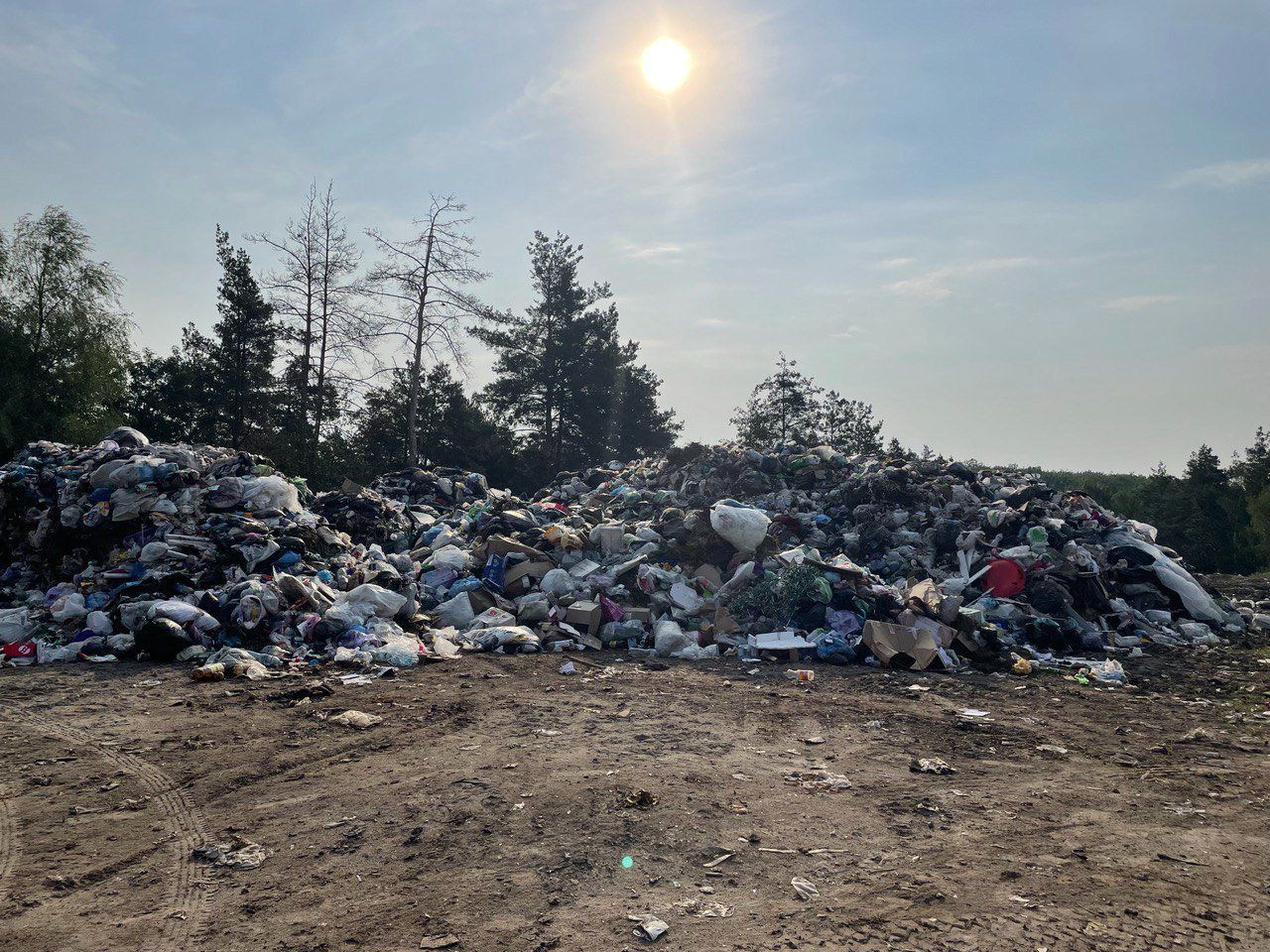
Illegal landfill in Vyshgorod, August 2022 (facebook.com/SEI.CD)
The new law introduces the concept extended producer responsibility. It obliges companies to collect and dispose of packaging and other waste from their products, either independently or in collaboration with other companies.
Previously, such a principle did not exist in Ukraine, and therefore it is important that it work in practice, and not on paper.
It is worth noting that The EU, which was a pioneer in the introduction of the concepts of the EPA and the "polluter pays" principle, provided Ukraine with expert support in the development of regulatory documents. Draft laws "On packaging and packaging waste", "On waste electrical and electronic equipment" have already been developed, and "On batteries and accumulators" are in the works.
The Ministry of Environmental Protection and Natural Resources declares that Europe was transitioning to a new one waste management systems for 20-30 years. Therefore, there are fears that reforms in Ukraine will take decades, during which garbage will occupy new and new territories.
Difficulties during the preparation of the law
Draft law No. 2207-1d was prepared for more than two years by various teams of people's deputies. However, a number of corrections and comments were not taken into account. In particular, regarding the collection and storage of industrial waste, stimulating the development of the circular economy, etc.
The development of the document caused several scandals both among people's deputies and among the public. The document was prepared by the team of People's Deputy from the "Servant of the People" faction Oleksandr Marikovsky, who at that time was a member of the Verkhovna Rada Committee on Environmental Policy and Nature Management.
He became a member of several scandals with other people's deputies regarding support for ineffective reforms, in particular with Oleksandr Yurchenko and Anton Yatsenko. He also had conflict with the head of the eco-committee Oleg Bondorenko. Marikovsky accused him of lobbying during the preparation of the law and violation of parliamentary regulations. In addition, he stated that the eco-committee unreasonably rejects the amendments. Marikovsky himself was accused of not making the document public.
In January 2022, he was suspended from working on draft law No. 2207-1d, which was finalized by People's Deputy Pavlo Yakymenko. In October 2022, Marikovskyi left his position in the Eco Committee.
EU experience
In Europe, the new waste management system has existed for a long time, but not all countries have successfully implemented it.
In Germany, local residents face fines from tens to thousands of euros for improper waste management and an increase in the cost of garbage removal services. "Trash" detectives and neighbors also monitor cleanliness.
However, in Hungary there is no control over compliance with sorting rules. There are still landfills in the country, and people's awareness of the necessity and possibilities of sorting is quite low.
Successful cases
Some large supermarket chains have already launched separate collection, for example, "Silpo", Metro and Novus. The initiative was also supported by smaller chains, in particular, the store chain Aurora Multimarket opened the first full-fledged garbage sorting point in Poltava.
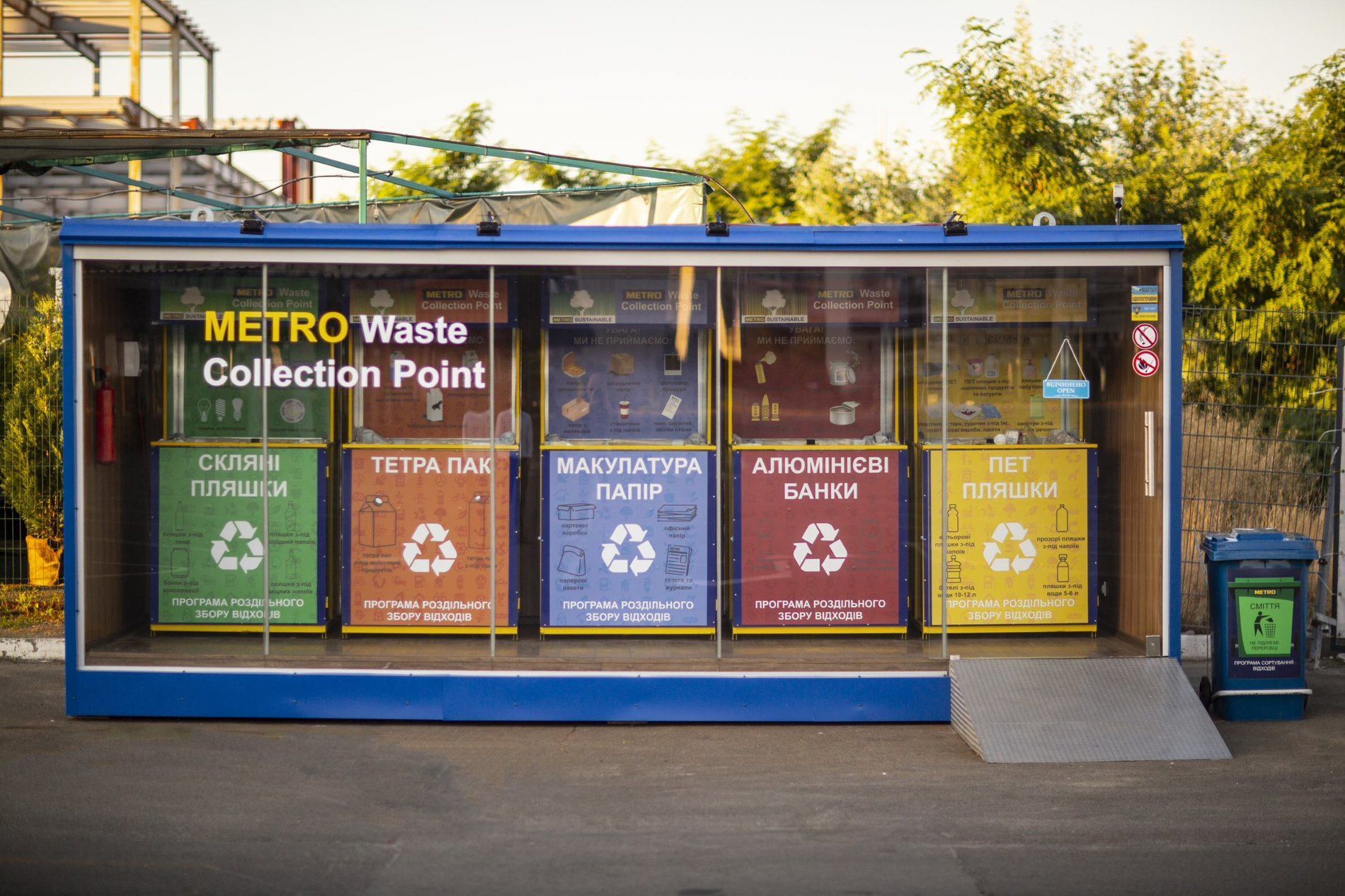
In addition, in a number of cities, waste processing and waste sorting plants have begun to be built, or relevant projects are being prepared, for example:
- in Zhytomyr, the first phase of the waste processing plant was put into operation;
- in Lviv, the construction of a waste processing plant was completed by 37.7%;
- in Transcarpathia, in the village of Yanoshi, preparations have been started for the construction of a waste sorting plant, another plant is planned to be built in the Tyachiv district;
- in Volyn, investors presented the project of a waste processing plant for organic waste.
These projects will be carried out with the money of private investors and international partners.
What has been done to minimize waste disposal in Ukraine
At present, it is mostly possible to minimize waste disposal and develop waste sorting thanks to activists.
Most communities do not have containers for sorting garbage, or their number is insufficient. Waste infrastructure is often absent in small communities. Ukrainians systematically create petitions and appeal to local authorities to increase the number of containers.
Also, it is often not possible to sort waste into four basic fractions (plastic, glass, paper, metal). For example, containers for sorting glass, plastic and hazardous waste are mostly installed in Kyiv. The number of containers for paper and metal is very small. Eco-conscious citizens are forced to use the initiatives of activists and take waste to the sorting stations of such public organizations as "Ukraine without trash" or "Green Bird". Some even send waste by mail, but most people throw valuable raw materials into the general container.
"They don't make money from garbage. They make money from service," said the founder and head of the NGO "Ukraine without garbage" Evgenia Aratovska. – Business entities in the field of waste management have never made money purely from garbage. We earn from services. And our secondary product – secondary raw materials or alternative fuel – will never allow us to reach the break-even point."
She emphasized that the price for secondary raw materials has never been high enough. However, garbage must be processed at any cost so that it does not end up in the environment.
It should be noted that companies in the recycling market do not receive benefits from the state or other assistance.
Activists of the organizations Zero Waste Lviv, "Smart environment. Khmelnytskyi", Yapomoga, "Clean Lutsk", "Batteries, give up!" are also fighting with garbage. etc. They develop community composting, recycling, in particular to minimize textile waste, open recycling cabinets and implement other Zero Waste principles.
However, Ukrainians who sort garbage sometimes do not follow the rules. For example, dirty bottles, oil bottles, Tetra Pak type packaging, etc. are taken to plastic collection containers.
The reaction of industry workers
Anzhelika Polatyan, a specialist at the private enterprise "Obukhivmiskvtorresursy", told EcoPolitics that the law has not affected the company's work so far. However, certain of its provisions may complicate the work. The law provides that an administrator (operator) will appear in the waste management system instead of a waste carrier. He will be elected by the local self-government body to serve consumers and control the quality of services in all communities.
"The main component of the law, which I would like to correct, is the fact that it is necessary to leave the administrator only in those areas where more than 500 thousand people live, and where it is less – it is not necessary. After all, maintaining an administrator in small communities will significantly increase the cost of the service. The question arises "for what?", she said.
Polatyan added that it is also worth removing from the new law the provision that only a utility company can be an administrator.
"Subjects of economic activity should also have the right to be such administrators, because then there will be competition, which means that the service will be provided with higher quality, and the cost will be lower," she said.
Why reform is necessary
As of 2021, Ukraine was one of the world leaders in terms of the number of landfills – about 6,000 landfills and landfills with a total area of more than 9,000 hectares. Such territory can be compared with the area of 12,605 football fields, or cities such as Chernihiv or Sumy. In addition, there are also illegal spontaneous landfills.
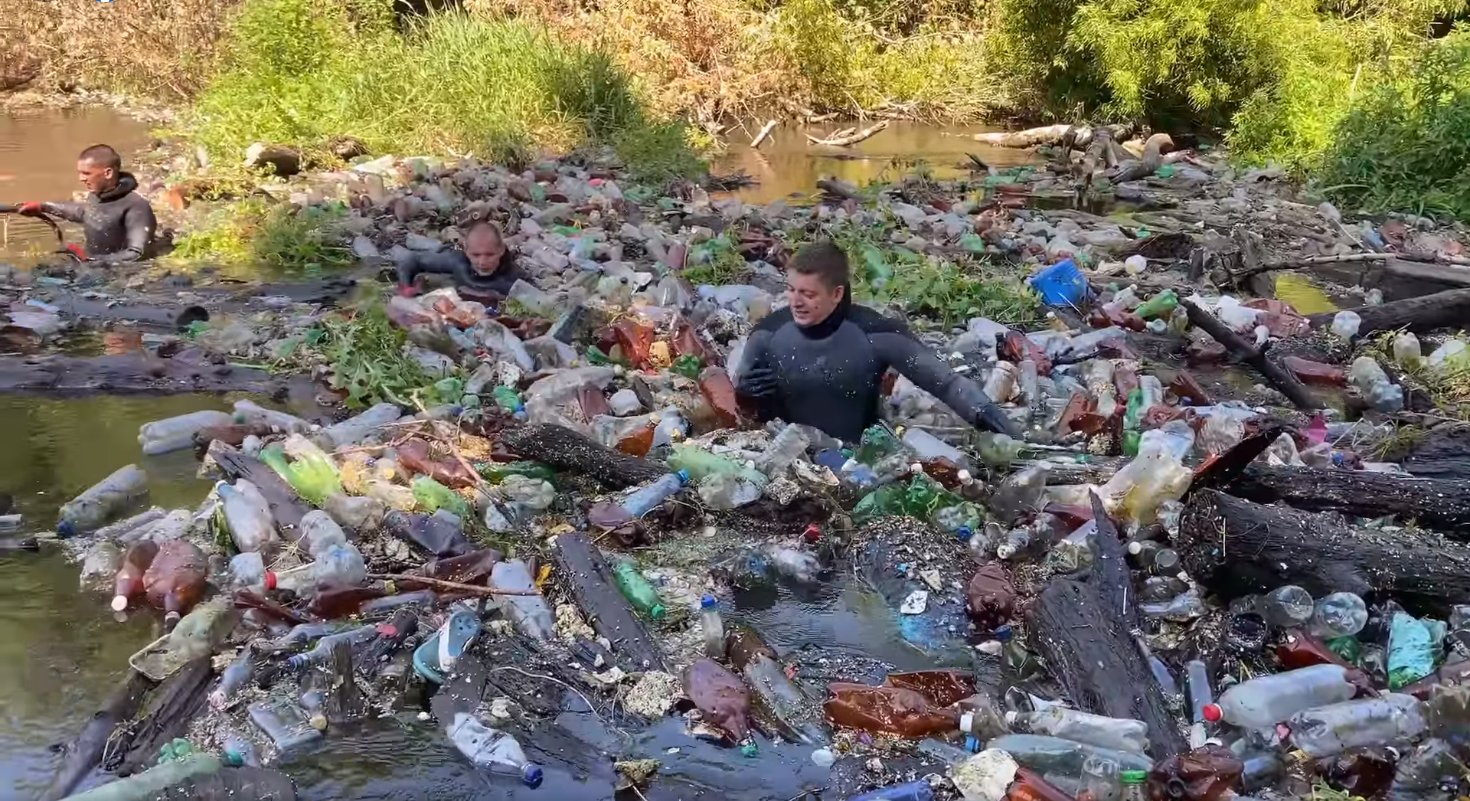
Volunteers clean the Uda River in Kharkiv region, July 2021 (facebook.com/prihdkoartem)
Every year, official and unofficial landfills grow, occupying new territories. Most landfills in Ukraine are overcrowded and do not meet European standards, so they need to be closed and rehabilitated. However, it is still unknown how many years this may take.
In addition, in some regions, in particular in Zakarpattia, there is even an outdated infrastructure for waste management. Therefore, residents are forced to either use the services of local activists or throw garbage into rivers. There is so much garbage that it flows into Hungary at a rate of about 100 bottles per minute and even creates serious traffic jams.
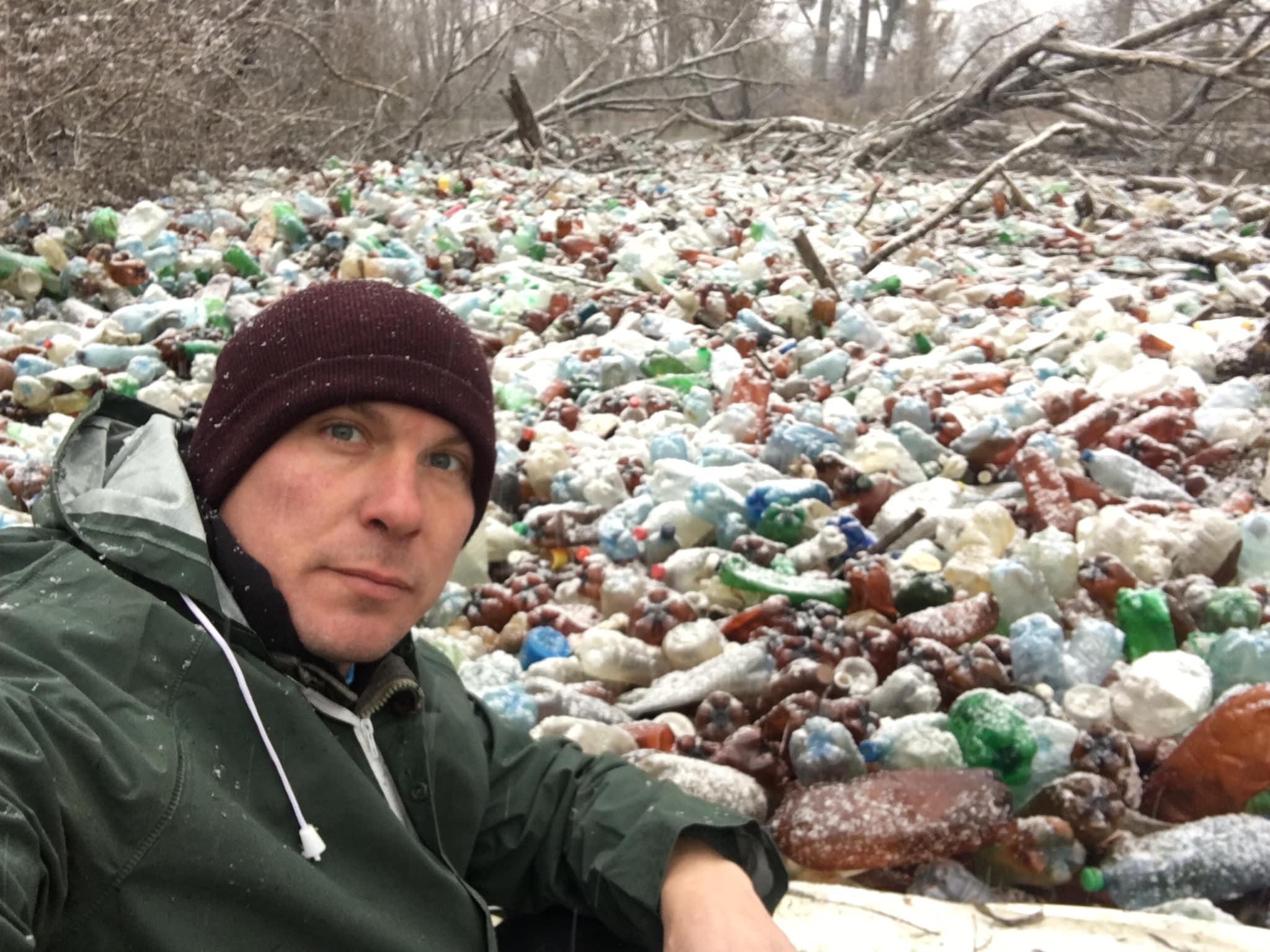
Borzhava River, Transcarpathia, January 2022 (facebook.com/viktor.buchynskyy)
Although there are enterprises engaged in secondary processing in Ukraine, most of the waste has to be bought in other countries, spending billions of hryvnias. And "local" raw materials end up in landfills.
EU member states must achieve 65% recycling of total packaging waste by 2025 and reduce landfilling to less than 10% by 2035. Ukraine, as a candidate member of the bloc, does not have several decades to slowly implement a new waste management system.

